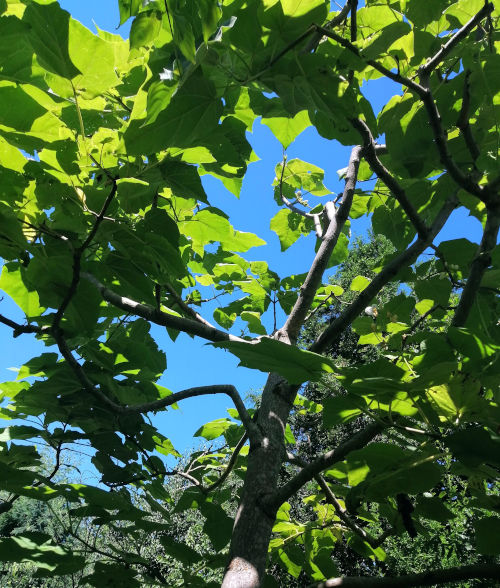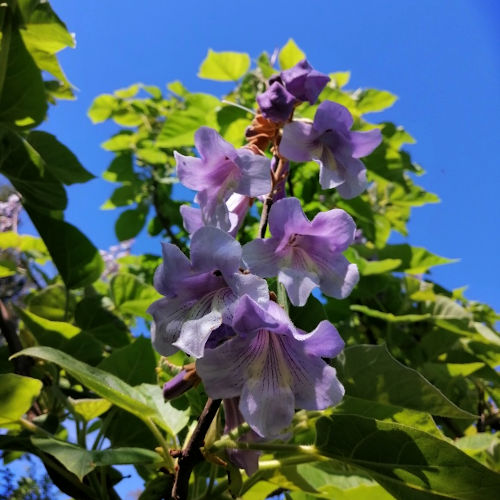Paulownia Seed

Common name
princess tree, empress tree, or foxglove-tree
Botanical name
Paulownia tomentosa
Details
Deciduous hardwood tree with very large leaves.
Fragrant flowers, large and violet-blue in colour are produced before the leaves, in early spring.
Native to central and western China.
An extremely fast-growing in the right conditions reaching a height of 10 - 25m
Perennial
Price
$4.90
20 seeds
